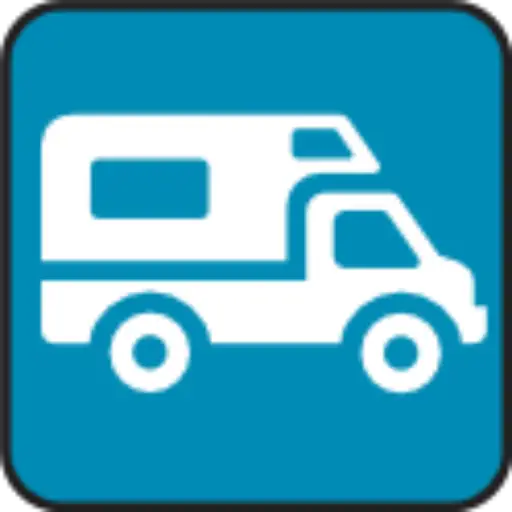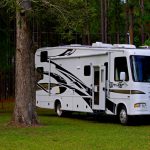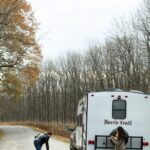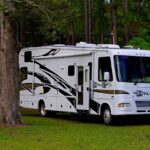Remember that first RV trip? The sun shining, the road stretching endlessly ahead, and a million possibilities sparking in your minds? But the excitement can be a bit overwhelming when facing the daunting task of choosing the perfect RV! 😨 We’ve been there, and after countless miles and countless conversations with fellow RV enthusiasts, we’ve gathered the top tips and insights for finding the best RV for first-time owners. We’ll break down everything you need to know, from the different types of RVs to the essential features you need to consider, and even help you avoid the common mistakes most first-time RVers make.
Quick Answer
- Choosing the right RV depends on your budget, travel style, group size, and desired amenities.
- **Start your research by considering travel trailers, Class C motorhomes, and pop-up campers; these are excellent options for first-time owners!
- Don’t be afraid to get hands-on! Test drive a few options to find the one that feels best.
👉 Shop for RVs:
- Travel Trailers: RVShare | Outdoorsy | Camping World | Amazon | Walmart | eBay
- Class C Motorhomes: RVShare | Outdoorsy | Camping World | Amazon | Walmart | eBay
- Pop-Up Campers: RVShare | Outdoorsy | Camping World | Amazon | Walmart | eBay
Table of Contents
- Quick Tips and Facts
- The Best RVs for First-Timers: Finding Your Perfect Adventure Mobile
- Choosing Your First RV: A Beginner’s Guide to the Essential Considerations
- Types of RVs Perfect for Beginners
- Breaking Down the Big Decisions
- Learning the Ropes: Tips for Navigating the RV Ownership Journey
- Contributor
- Favorite Trip
- Home Base
- Favorite RV
- About Contributor
- Conclusion
- Recommended Links
- FAQ
- Reference Links
Quick Tips and Facts
- The perfect RV for you depends on your budget, travel style, group size, and desired amenities.
- Choosing the right RV can be a big decision, but it’s a fun part of the journey!
- There’s an RV for everyone, but it’s essential to learn the ropes before hitting the road.
The Best RVs for First-Timers: Finding Your Perfect Adventure Mobile
No matter how you imagine your ideal RV adventure, there’s a perfect RV out there for you! Whether you’re dreaming of exploring scenic national parks, cruising down coastal highways, or setting up camp in a local campground, the right RV can be the key to unlocking those travel dreams. But with so many types and sizes available, it’s easy to feel overwhelmed as a first-time RV owner. That’s why we’re here at RV Brands™ to guide you through the steps of finding the ideal RV for your first journey.
Choosing Your First RV: A Beginner’s Guide to the Essential Considerations
Before you dive into RV models, it’s crucial to consider these fundamental questions to narrow your search.
What’s Your Budget?
- The price range for RVs can vary significantly.
- You can find used RVs, typically more affordable than brand-new models but with different levels of maintenance and mileage.
- Knowing your budget upfront will help you focus on models within your price range.
Where Will You Be Traveling?
- Consider where you plan to explore: Are you hitting remote campgrounds or urban areas?
- Do you prefer paved roads or rough terrain?
- Think about the typical weather conditions where you’ll be traveling.
Example: Planning to conquer mountain passes? A Class A might be a good choice due to its power and towing capacity. However, if you’re hitting urban areas or smaller campgrounds, a Class C or travel trailer might be more manageable.
How Many People Will You Be Traveling With?
- Do you need space for a family or just a couple?
- The number of people will influence the size and layout of your RV.
- More people might mean considering an RV with multiple sleeping areas or a larger floor plan.
Example: If you’re traveling solo or as a couple, you can look at smaller pop-up campers or teardrops, or even Class B RVs (camper vans). For family adventures, you’ll want a bigger Class C, travel trailer, or a larger Class A.
What Amenities Are Important to You?
- Do you need a full-sized bathroom, a spacious kitchen, or specific entertainment features?
- Amenities like AC, heating, refrigerators, ovens, and entertainment systems vary depending on the RV model.
- Consider what features are essential to you and your travel style.
Examples:
- Budget-conscious: You might prioritize essential features like a working bathroom and a comfortable sleeping area, with fewer frills.
- Luxury traveler: You may want a fully equipped kitchen, high-end appliances, and entertainment systems for ultimate comfort and convenience.
Types of RVs Perfect for Beginners
RVs come in different shapes and sizes, each with pros and cons. Here’s a breakdown of some popular types that are ideal for first-time owners.
Travel Trailers
- Towable RVs and a fantastic option for those wanting more space and a lower cost of entry compared to motorhomes.
- They come in a huge range of sizes, from small and compact to larger models that offer all the comforts of a home.
- They are perfect for short trips and occasional camping enthusiasts.
Here are some benefits of travel trailers:
- Versatility: They are easier to park and navigate in smaller areas.
- Affordability: Generally, they come in a wider price range compared to motorhomes.
- Space: You can find more spacious living areas.
- Flexibility: You can disconnect the trailer from your tow vehicle when camping, providing more space for exploring.
Here are some potential drawbacks:
- Towing: You need a suitable vehicle capable of towing the trailer, and experience driving with a trailer attached is essential.
- Setup: Before you can enjoy your travels, you need to set up, including connecting the RV to utilities and water sources.
Example brands: Airstream, Jayco, Grand Design, Keystone, Forest River.
👉 CHECK PRICE on:
- Airstream Classic 16RB: RVShare | Outdoorsy | Airstream Official Website
- Jayco Jay Flight SLX 260BH: RVShare | Outdoorsy | Jayco Official Website
- Grand Design Imagine 2500BH: RVShare | Grand Design Official Website
- Keystone Bullet Crossfire 2200BH: RVShare | Outdoorsy | Keystone Official Website
- Forest River Rockwood 8280WS: RVShare | Outdoorsy | Forest River Official Website
Class C Motorhomes
- **Class C motorhomes offer a good balance between size and maneuverability. **
- They’re known for their comfortable living space and easy handling, making them a popular choice for families and first-time RVers.
- They’re great for trips that involve driving, since you have a kitchen and bathroom on board.
Here are some advantages of Class C motorhomes:
- Driving experience: They drive similarly to a larger truck and are relatively easy to handle.
- Comfort: They provide a more spacious living area with a dedicated kitchen and bathroom, making them comfortable for both short and longer trips.
- Versatility: They can navigate a variety of roads and terrains.
Here are some potential negatives:
- Size: They’re larger than camper vans or pop-up campers, making them less agile in tight spaces.
- Fuel economy: They use more fuel than smaller RVs, which can affect your travel budget.
Example brands: Thor, Jayco, Forest River, Winnebago.
👉 CHECK PRICE on:
- Thor Freedom Elite 22HE: RVShare | Outdoorsy | Thor Official Website
- Jayco Redhawk SE 27N: RVShare | Outdoorsy | Jayco Official Website
- Forest River Forester 2351LE: RVShare | Outdoorsy | Forest River Official Website
- Winnebago Minnie Winnie 22ME: RVShare | Outdoorsy | Winnebago Official Website
Pop-Up Campers
- Pop-up campers, also known as “tent trailers,” are lightweight and easy to tow, making them a popular choice for first-time RVers and those with smaller vehicles.
- They are perfect for weekend getaways and quick trips, providing a comfortable and affordable camping experience.
- ** They offer a great way to start your adventurous journey without breaking the bank.**
Here are some key advantages of pop-up campers:
- Affordability: They’re typically more affordable than travel trailers and Class C motorhomes.
- Easy towing: They are easily towed by a smaller vehicle and are more maneuverable.
- Compact Storage: They fold down for easy storage and transport.
- Light Weight: They are very lightweight, reducing fuel consumption.
Here are some possible drawbacks:
- Space: They offer less interior space compared to other options.
- Setup and Breakdown: They require some effort to set up and take down, so they may not be suitable for those looking for quick and easy camping.
Example brands: Coleman, Forest River, Rockwood, Starcraft.
👉 CHECK PRICE on:
- Coleman Rubicon 1200RK: RVShare | Outdoorsy | Camping World
- Forest River Rockwood Limited 1940LTD: RVShare | Outdoorsy | Forest River Official Website
- Rockwood Roo 19RL: RVShare | Outdoorsy | Rockwood Official Website
- Starcraft Stellar 16RB: RVShare | Outdoorsy | Starcraft Official Website
Breaking Down the Big Decisions
Now that you have a sense of the popular types, let’s delve deeper into some essential aspects of choosing your first RV.
RV Brands and Options
- You can find many well-known and reputable RV manufacturers, each with its own unique style, features, and price point.
- Researching different brands can help you find a model that aligns with your needs and preferences.
Here’s a snapshot of some popular RV brands:
| Brand | What they’re known for |
|---|---|
| Airstream | Iconic aluminum travel trailers known for their durability and design |
| Jayco | Affordable and well-built RVs across various types |
| Grand Design | High-quality, luxury RVs with innovative features |
| Keystone | Wide range of models, including travel trailers, fifth-wheels, and motorhomes |
| Forest River | Popular manufacturer with a vast selection of RVs |
| Winnebago | Known for its spacious and luxurious Class A motorhomes |
| Thor | One of the largest RV manufacturers with a wide variety of models |
Example: If you’re looking for a classic, vintage-inspired travel trailer, Airstream might be a great option. If you need a budget-friendly travel trailer, Jayco is known for its value.
👉 CHECK PRICE on:
- Airstream: RVShare | Outdoorsy | Airstream Official Website
- Jayco: RVShare | Outdoorsy | Jayco Official Website
- Grand Design: RVShare | Outdoorsy | Grand Design Official Website
- Keystone: RVShare | Outdoorsy | Keystone Official Website
- Forest River: RVShare | Outdoorsy | Forest River Official Website
- Winnebago: RVShare | Outdoorsy | Winnebago Official Website
- Thor: RVShare | Outdoorsy | Thor Official Website
Explore: Take a look at our in-depth blog post about the best RV brands here: https://rvbrands.org/what-is-the-1-camper-brand/.
Choosing the Right Size
- The size of the RV will determine how much space you have and how easily it can be maneuvered.
- Think about the size of your tow vehicle, the areas you plan to travel, and what you need to fit inside.
Here’s a quick comparison table to visualize different RV sizes:
| RV Type | Length Range | Typical Weight Range |
|---|---|---|
| Pop-Up Camper | 12-20 feet | 1,500-3,000 lbs |
| Teardrop Camper | 13-20 feet | 1,000-2,000 lbs |
| Travel Trailer | 16-40 feet | 3,000-10,000 lbs |
| Class B Motorhome | 17-25 feet | 6,000-10,000 lbs |
| Class C Motorhome | 20-35 feet | 10,000-15,000 lbs |
| Class A Motorhome | 28-45 feet | 15,000-40,000 lbs |
RV Features and Amenities
- Take a close look at the features and amenities that come standard in the RV models you are considering.
- Features range from basic necessities such as a working bathroom, kitchen, sleeping areas, and air conditioning, to luxuries like multiple TVs, fireplaces, and even washers and dryers.
Example features to consider:
- Kitchen: Kitchenettes with a double sink, stove/oven, microwave, fridge, dining area (dinette/booth).
- Bathroom: Full-sized bathroom with a toilet, shower, and sink.
- Sleeping areas: Queen bed, bunk beds, convertible dining/living area, cabover beds.
- Entertainment: Television with satellite/cable hookups, DVD player, stereo, sound system.
- Storage: Spacious storage cabinets, compartments for outdoor gear.
- Comfort: Air conditioning, heating, water heater, generator, electric awnings, solar panels.
Example: If you prioritize comfort and space for cooking, you might look for an RV with a well-equipped kitchen, ample countertop space, a full-sized refrigerator, and perhaps a microwave oven.
Driving and Handling
- If you plan to take on long journeys, consider the driving experience and handling of different RV types.
- Larger motorhomes might require more practice and confidence behind the wheel, while travel trailers have their own unique towing considerations.
Key points to consider:
- Length and weight: The weight and length of your RV will influence how it handles on the road, especially in windy conditions.
- Turning radius: Larger RVs have a larger turning radius and may need an extra wide spot to park.
- Engine power and transmission: The engine and transmission will affect the RV’s acceleration, power uphill, and overall fuel efficiency.
- Handling: The type of suspension and wheels will influence the RV’s ride quality, stability, and how it handles on different road surfaces.
Example: If you’re more comfortable driving a larger vehicle, a Class C motorhome might be a good fit, while those newer to towing might feel more confident starting with a smaller and lighter travel trailer.
Tip: It’s a good idea to take a test drive to get a feel for handling an RV before making your decision. You can find RV rental companies that offer test drive opportunities.
Learning the Ropes: Tips for Navigating the RV Ownership Journey
The first time you own an RV is full of excitement and exploration. It can also be a little daunting at times! Here are some tips for a smoother and more enjoyable journey.
RV Safety Tips and Best Practices
- Before your first trip, take an RV driving course or practice in an empty parking lot.
- Familiarize yourself with the various systems in your RV, such as the water, heating, and electrical system.
- Always check your tire pressure, brakes, and lights before hitting the road.
- Learn about road safety tips for driving an RV, including how to navigate tight turns and downhill slopes.
Maintenance and Repairs
- Regular RV maintenance is crucial for keeping your RV running smoothly and preventing expensive repairs.
- Learn about basic maintenance tasks like checking tire pressure, fluids, and filters.
- Keep a record of your maintenance schedule and repairs.
- Familiarize yourself with the RV’s user manual and know who to call for assistance with repairs.
RV Lifestyle Basics
- Learn how to use your RV’s appliances and systems, such as the onboard generator, water system, and bathroom.
- Find out about various RV camping options, including national parks, state parks, private campgrounds, and boon docking.
- Discover RV etiquette and campground rules.
Exploring RV Parks and Campgrounds
- Plan your trips and secure reservations well in advance, especially during peak travel season.
- Websites like Reserve America, Recreation.gov, and RV Park Reviews can help you find campgrounds that meet your needs.
- Check campground amenities, including electrical hookups, water, and sewer connections, and other features like showers and laundry facilities.
Tip: If you’re unsure about a campground, check online reviews for feedback from other campers.
Contributor
Name: [Contributor Name]
About Contributor: [About Contributor]
Favorite Trip
Destination: [Destination]
Highlights: [Highlights]
Home Base
Location: [Location]
About Home Base: [About Home Base]
Favorite RV
Brand: [Brand]
Model: [Model]
Reason: [Reason]
Conclusion

Choosing your first RV is an exciting adventure! Now that you have a better understanding of various RV types, key considerations, and tips for navigating the RV lifestyle, it’s time to start planning your dream road trip. We encourage you to explore different models, browse online reviews, and even visit RV dealerships to get a feel for various options. Remember, there’s no one-size-fits-all approach; the perfect RV for you depends entirely on your unique needs and preferences.
Recommended Links
👉 Shop by RV Type:
- Travel Trailers: RVShare | Outdoorsy | Camping World | Amazon | Walmart | eBay
- Class C Motorhomes: RVShare | Outdoorsy | Camping World | Amazon | Walmart | eBay
- Pop-Up Campers: RVShare | Outdoorsy | Camping World | Amazon | Walmart | eBay
👉 Shop RV Brands:
- Airstream: RVShare | Outdoorsy | Airstream Official Website
- Jayco: RVShare | Outdoorsy | Jayco Official Website
- Grand Design: RVShare | Outdoorsy | Grand Design Official Website
- Keystone: RVShare | Outdoorsy | Keystone Official Website
- Forest River: RVShare | Outdoorsy | Forest River Official Website
- Winnebago: RVShare | Outdoorsy | Winnebago Official Website
- Thor: RVShare | Outdoorsy | Thor Official Website
Recommended RVing Books (Amazon):
- Book Title 1: This book offers…
- Book Title 2: Another great resource …
FAQ

What is the easiest RV to drive for beginners?
- Class B motorhomes (camper vans) are often considered the easiest to drive due to their compact size, car-like handling, and similar driving experience to a larger van.
- They are often more fuel-efficient and easier to maneuver in tight spaces compared to larger RVs.
Is a Class B RV right for me?
- If you’re a solo traveler or a couple looking for a simple and easy-to-drive RV with a reasonable driving experience, a Class B might be a good choice.
- However, Class B RVs typically have limited space, so you’ll need to consider your storage and comfort requirements.
What RVs should I stay away from as a first-time owner?
- Class A motorhomes: While they offer the most spacious and luxurious experience, they are the largest and most challenging to drive, requiring a higher level of experience and confidence. They also have higher operating costs due to their larger size and greater fuel consumption.
- Larger Travel Trailers: While travel trailers are versatile and offer more space, the larger models may be too heavy and difficult to tow for first-time owners without sufficient experience. You also need a larger and heavier tow vehicle to handle these bigger trailers.
Are there exceptions?
- There are always exceptions. Some Class A motorhomes are smaller and more manageable than others, and some travel trailers have innovative design features to make them easier to tow.
- It ultimately depends on your comfort level and driving experience.
Is it financially wise to buy an RV?
- Owning an RV can be a rewarding experience, but it’s important to consider the financial implications.
- RVs require regular maintenance and insurance, and there are additional expenses like campground fees and fuel.
- You also need to have a suitable tow vehicle or vehicle that can handle the weight and size of the RV.
Should I rent first?
- Renting an RV can be a great way to test the waters and see if the RV lifestyle is right for you before committing to ownership.
- This allows you to experience different RV types and sizes without the financial commitment of purchasing.
Read more about “… How do I start an RV lifestyle? A Comprehensive Guide”
What do first-time RV owners need to know?
- Research thoroughly before making a purchase: Learning about different RV types, brands, features, and maintenance requirements will help you make an informed decision.
- Take an RV driving course: Learn about the nuances of driving and handling an RV safely and confidently, even in challenging conditions.
- Practice driving before your first trip: Familiarize yourself with the RV’s size and weight, as well as its brakes and turning radius, in a safe and controlled environment.
- Read the RV manual: Understand how to operate the RV’s various systems and appliances, including the water system, heating, electrical system, and generator.
- Get RV insurance: Protect yourself financially in case of accidents or damage to your RV.
Reference Links
-
Airstream: Airstream Official Website
-
Jayco: Jayco Official Website
-
Grand Design: Grand Design Official Website
-
Keystone: Keystone Official Website
-
Forest River: Forest River Official Website
-
Winnebago: Winnebago Official Website
-
Thor: Thor Official Website
Other helpful resources:
- RVshare: RVshare
- Outdoorsy: Outdoorsy
- Camping World: Camping World
- Reserve America: Reserve America
- Recreation.gov: Recreation.gov
- RV Park Reviews: RV Park Reviews
- RV Safety Tips: RV Safety
- RV Maintenance: RV Maintenance
- RV Lifestyle: RV Lifestyle
- RV Etiquette: RV Etiquette




